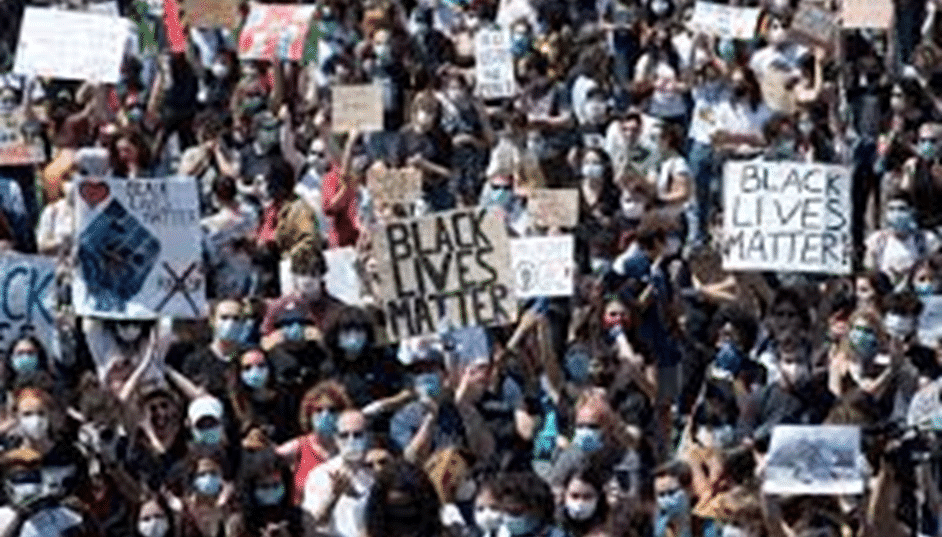POSTS:
Social & Political Engagement

The value of meditational awareness and Buddhist ethics for progressive groups
Katya de Kadt explains how meditational awareness and an ethics based in the values and wisdom of Buddhism can help activists avoid burnout and play a productive role in the struggle for social change.

Towards a flourishing-based ethics
Seth Zuiho Segall brings together the virtue ethics systems of Aristotle, the Buddha, and Confucius with the pragmatists' emphasis on provisional truths and democracy to offer a new flourishing-based ethics.

The path of the bodhisattva or ‘making the road’ through solidarity?
Mike Slott offers an alternative model to the path of the Bodhisattva, one based on the solidarity of practitioners 'co-creating' the transformative changes that we seek.

Anger, conflict and compassion
Given the anger that many people feel in relation to the tragic events in Ukraine and to violent conflicts in other parts of the world, John Danvers reflects on this powerful emotion and how we might deal with it in a skillful way so that anger is transformed into compassionate action.

What is engaged Buddhism missing? The Buddha on poverty and plutocracy
In a recent dharma talk, David Loy emphasized the economic roots of the climate crisis and calls for structural, not just individual, change. According to David, 'the ecological crisis is deeply implicated in the basic structure of our economic system. . . In other words, the eco-crisis is also an economic—especially a class—crisis.'

How Buddhist insights and values can help sustain political activism
Mike Slott explores the ways in which Buddhist insights and values can enable political activists to sustain their activity in various movements and to make a positive contribution to the organizations in which they participate.

The core life tasks and beliefs for a radically engaged Buddhist
Mike Slott, Katya de Kadt, and Karsten Struhl offer an account of the core tasks and beliefs for radically engaged Buddhists who seek not just individual transformation but the dismantling of social, economic, and political systems which cause harm and suffering to all beings.

A response to ‘The core life tasks and beliefs for a radically engaged Buddhist’
In response to the article by Slott, de Kadt, and Struhl on 'The core life tasks and beliefs for a radically engaged Buddhist,' Winton Higgins expresses his agreement with the authors' perspective, but points to a missing piece in the article: the lack of any discussion over a pathway or transition from our present morass to a socially just, future society.

Understanding and alleviating suffering (dukkha)
We suffer not only because we have the tendency to be angry, greedy, and deluded, but because social, political, and economic structures foster these tendencies and amplify their impact. John Danvers discusses the characteristics of a society which would facilitate their opposites: compassion, non-harming, cooperation, and mindfulness.

An interview with Yanai Postelnik on meditation and climate change activism
Bernat Font Clos interviewed Yanai Postelnik, a meditation teacher who in recent years has been devoting more and more time to climate activism with the group Extinction Rebellion, a decentralized, international movement using non-violent direct action and civil disobedience to persuade governments to act on the climate emergency.

The New Buddhist Fellowship in Meiji Japan: an early experiment in socially active secular Buddhism
James Mark Shields discusses the New Buddhist Fellowship (NBF), a group of roughly a dozen young scholars and activists in Japan who developed a more modern and secular version of Buddhism. In several important respects, the New Buddhists of early twentieth-century Japan lay the foundations for later movements such as socially engaged and secular Buddhism.

Anti-racism and the dharma: next steps
Jewel Wheeler argues that the pain and suffering caused by racism require us to understand why our response as Buddhists - both secular and traditional - has been inadequate. Then, we can begin to think through how we can bring dharmic insights more effectively into the struggle for a multi-racial, just society.

Dharma EconomiX
Stefano Bettera offers a spiritual perspective on social reconstruction - Dharma EconomiX - that goes beyond the anthropocentric model and focuses, instead, on practices, languages and imagery capable of healing the social and ecological wounds that we face today. Such a perspective provides us with an opportunity for a revalorisation of the individual and of the community.

A response to SBN’s interview with David Edwards: the need for skillful goal-oriented activism
Responding to David Edwards' criticism of goal-directed Left activism in his interview with SBN, Mark Evans argues that we do need skillful goals to guide our actions, counter cynicism, inform our judgment. Skillful goals are a 'middle way' between reactive cynicism and debilitating myths.

An interview with David Edwards on corporate media bias, political activism, and meditation
SBN interviewed David Edwards, the co-editor of the UK-based media watch site Media Lens and author of several books. David discussed his critique of corporate media bias and how political activists can make a real difference by focusing on being, not just on doing; on learning to truly live and feel, rather than solely on external change.
EXPLORE BY SECTION
SEARCH THE SITE
RECENT POSTS









